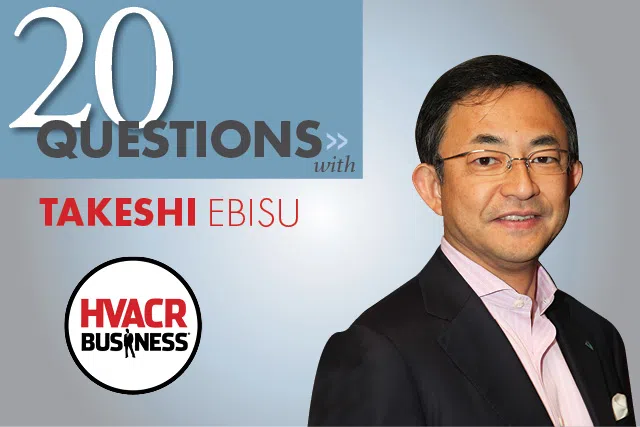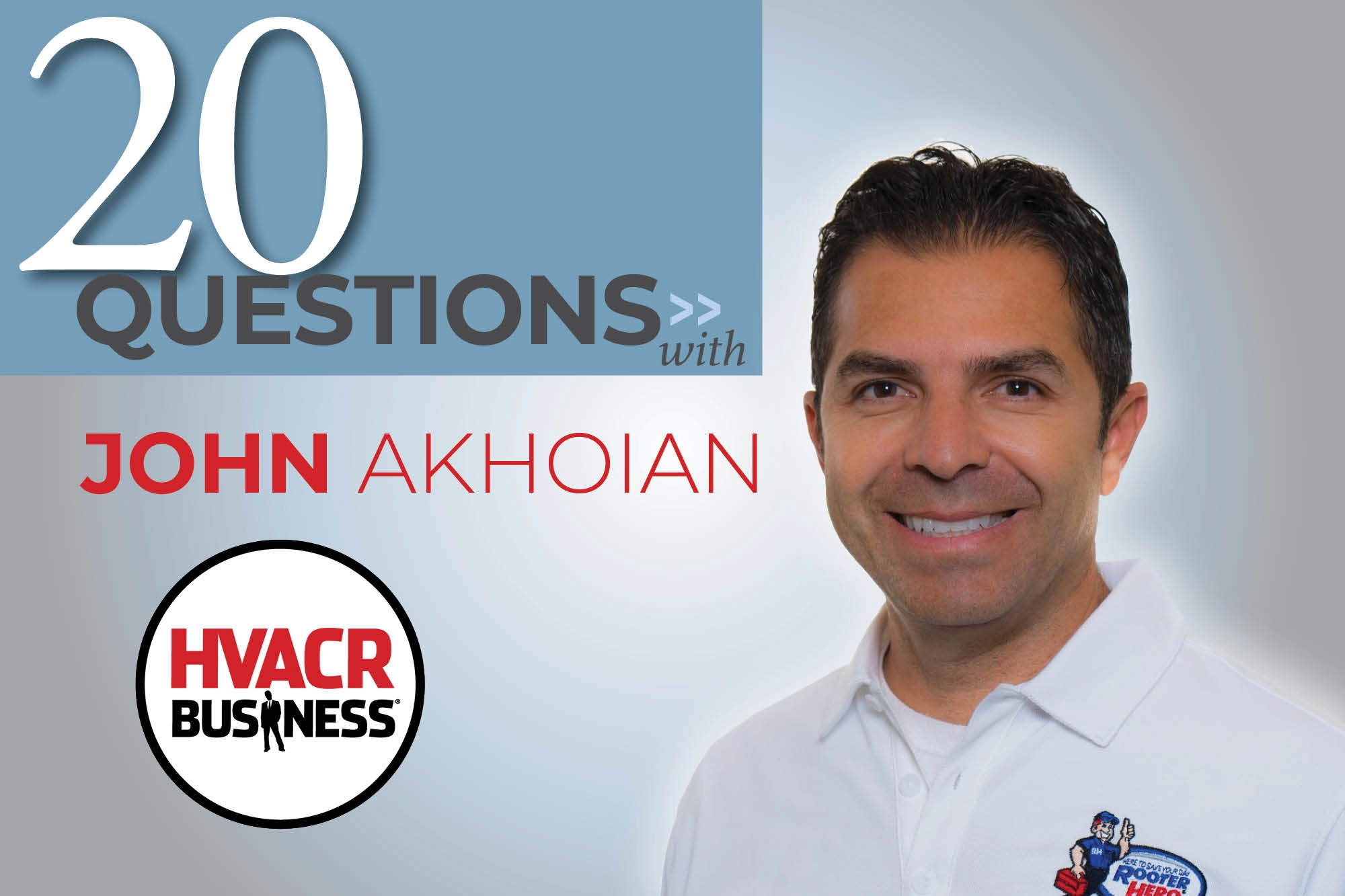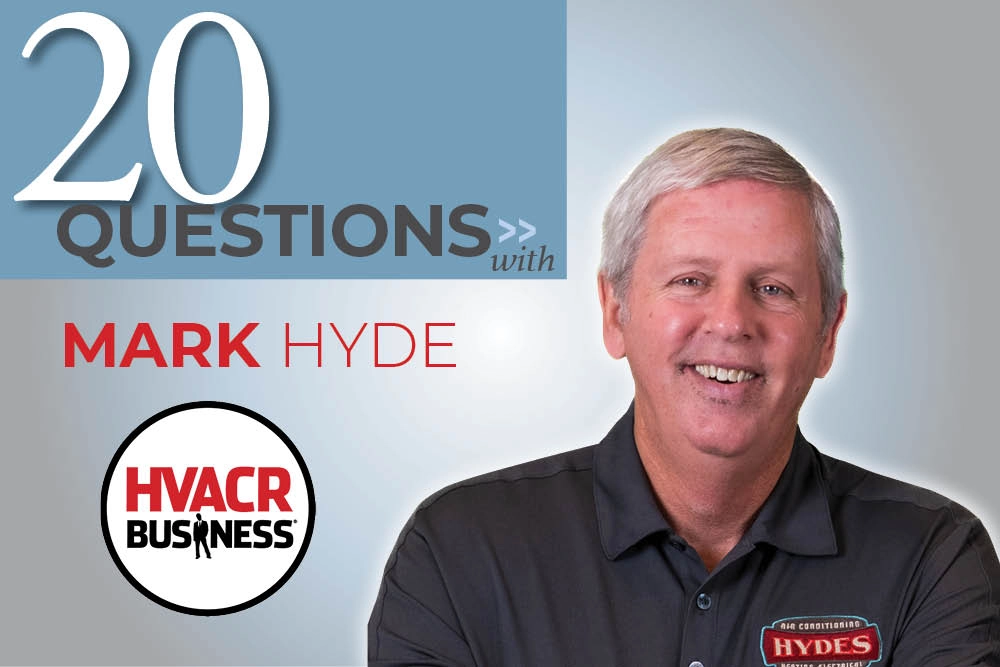Takeshi Ebisu, senior executive officer for Daikin, discusses Daikin Industries' acquisition of Goodman Global Inc. for $3.7 billion and what the future holds for both companies.
1. There had been talk of Daikin acquiring Goodman for about two years. Why now?
In the spring of 2011, Daikin was reviewing the Goodman acquisition and planning to have the owners come to Japan to meet with our top management. However, we stopped the talks when the earthquake and tsunami struck Japan. A year later, the negative impact from the disaster had largely subsided, so we considered resuming the acquisition talks.
2. And the Goodman owners were still interested?
Yes, H&F [owners Hellman & Friedman LLC] was of the mind that Daikin was the best partner for the future growth of Goodman, and toward the end of this spring, they agreed to resume the talks. That process led to the eventual acquisition.
3. Why was the United States an attractive place for Daikin to expand?
Although Daikin had become No. 1 globally in the HVAC industry, we felt that taking a strong position in the United States would provide tremendous value. The United States is the center of the HVAC industry and its birthplace.
4. Why was the Goodman acquisition a good expansion option?
Residential air conditioning is the largest segment of the U.S. market. Acquiring Goodman, a leading residential HVAC manufacturer, positions us extremely well to achieve our growth goals.
5. I’ve read that the growing desire of U.S. consumers to be more energy efficient attracted Daikin as well, but that’s been going on for a while. Why now?
From a global perspective, the U.S. market lags in the environmental friendliness of air conditioning products. Since the Obama administration began offering incentives two years ago, however, high-efficiency products and systems started to achieve a steady sales expansion. The rise of environmental awareness is undeniable. Therefore, we believe we can generate a major shift in greening the U.S. market.
6. How are you going to do that?
We see an excellent opportunity to launch environmental products with Daikin’s advanced energy-saving technology — such as the inverter-driven compressor and heat-pump system — and lead where the U.S. market has fallen behind.
7. What is Daikin hoping to learn from Goodman?
One thing is Goodman’s very efficient management style. It could be described as lean, but it also has some good qualities that are not current strengths at Daikin. To give one example, its supply-chain management system is extremely efficient with low fixed costs in addition to providing access to a high level of information. Its factories are also very cost competitive.
8. Why is this a benefit for Daikin?
Daikin needs improvement in these areas. We plan to learn the lean management know-how from Goodman and then spread it across all of our global operations, including Japan. If we do this, we will be able to enhance Daikin’s fundamental capabilities worldwide and increase our profitability.
9. Are you planning to keep the Goodman leaders that created those highly efficient systems?
We very much welcome Goodman’s excellent management team and the entire staff to the Daikin Group. Not only do we believe that this talented team will achieve growth at Goodman, but we also believe it will contribute greatly to global growth at Daikin.
10. Would you say that this is a new approach for a Japanese manufacturer?
Yes, I think so. I don’t know how much other Japanese manufacturers value the management team of the acquired companies, but it’s what counts for Daikin. At Daikin, we put our People-Centered Management philosophy into practice globally.
11. What does that mean?
We believe that people are one of the greatest assets of the company. We were able to obtain a truly talented management team in this acquisition, and I think this accurately reflects Daikin’s philosophy to value our human resources.
12. It sounds as if spreading Goodman’s management system around the globe is a long-term project. What will be some shorter-term benefits?
We will benefit from synergies very quickly in the areas of direct procurement, logistics, and
supply-chain management.
13. Are you going to expand any U.S.-based Goodman manufacturing facilities?
Our plan is first to offer Daikin products to the market using the distribution network that Goodman has. Currently, Daikin is supplying Daikin products to North America by importing from our factories in Japan or other Asian countries. However, this results in a longer lead time. And so in order to better respond to the customers’ requirements, and also to better serve our U.S. market, we plan to eventually have Goodman factories produce Daikin products.
14. Will you be building or acquiring additional plants in the United States?
Our current plan is to use the existing facilities, but Daikin’s basic philosophy is to have localized production to support the local market. Whatever we will be offering to the U.S. market we want to first be able to produce here.
15. Daikin established Daikin AC (Americas) in Dallas in 2005. Was this acquisition another step in expanding into the U.S. market?
Yes. Daikin spent a long time getting ready to enter the U.S. market, but we needed a robust distribution network.
16. What makes you confident the demand is there?
The ductless market is still growing, and we think this growth will speed up even more, including in the light commercial segment.
17. Will ductless systems displace ducted sales?
No. Given the design of homes in the United States, ducted products currently constitute the majority of the residential air conditioning market and are definitely not going away.
18. With a full lineup of ducted and ductless products, is Daikin’s offering now unmatched?
I think we now have the widest range of HVAC products in the world.
19. How does Daikin view the training of local contractors — Is there to be a combined effort of a Goodman-Daikin team?
We have provided training at our Dallas sales office to a variety of people. And so we believe that within Daikin we have the know-how to provide efficient training about how to sell our products. However, there are certain limitations that Daikin has, so together with Goodman we would like to provide training to as many people as possible as quickly as possible.
20. Do you anticipate that U.S. competitors will make moves in response to this acquisition?
Carrier, Trane and York are formidable brands, with both technological and sales capabilities. We’re going to be competing on their turf, so we have to be more ready than we’ve ever been before to find new ways to play successfully.






